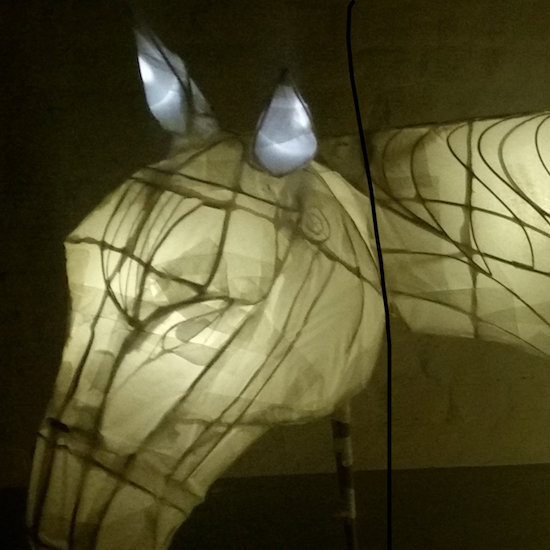Nearly a century ago, the Austrian author Robert Musil began work on his epic, unfinished novel The Man Without Qualities. Now considered a classic of modernism, it’s an exquisite panorama of follies laid bare in 1913 Vienna as the Austro-Hungarian empire enters its endgame. The novel is as good a parallel as you’ll find in literature for the countless fractious niches and noisy cranks of our current society, where bitter online rhetoric piles up and spills out. Musil’s analytic interlocutor Ulrich surveys values in flux (across social roles, art, crime, science, faith, love and much more) from his deactivated perch, but his perfect purview comes at the cost of action and a firm sense of self. As he picks ideologies and identities apart, problems multiply like the chopped brooms in Walt Disney’s Fantasia. Ulrich is a man without qualities, a brilliant commentator with no recommendations. Anyone hoping for hints on how best to live will come out empty-handed.
You can, though, also look through the other end of the telescope. In contrast to Musil’s paralysing approach, folk tales show us the world in a handful of compelling and usually deeply strange details. The products of countless minds, countless retellings, countless women’s and men’s takes on what matters most, they reveal deeper drives than Musil’s panopticon of pure intellect. Attempts to modernise or explain them usually bring you full circle to simply admiring the originals, realising there’s nothing to add or take away. You can go in hoping to learn and translate the language and come out realising it’s your mother tongue. An older form of storytelling, tried and true. And Kemper Norton has form with folklore. Last year’s inspired Toll flashed seamlessly between the mythical land of Lyonesse and the Torrey Canyon oil spillage of 1967 (they shared a rough watery location). Now Hungan (Cornish for ‘lullaby’) goes further by simply dramatising the 18th-century legend of Cruel Coppinger. Well, not simply.
As his soubriquet suggests, Cruel Coppinger was a man with one very notable quality. A fucking great Dane who washed up on the Cornish coast on the proverbial dark and stormy night, he waded through the waves and claimed a local named Dinah Hamlyn for his wife. Then he set up a crime empire and carried on being an all-round motherfucker. His son would be born deaf, mute and, it was said, without a soul. Coppinger would later disappear in another storm, “carried away by the wind” in some tellings.
While the subject matter’s about as comforting as ‘Rock A Bye Baby’, Hungan certainly dwells in a state somewhere between sleeping and waking (a very big ‘between’). It’s hard to draw comparisons with other artists without doing Norton’s rich and consummate style a disservice, but if you’re a fan of the late Coil of looping synth wisps and midnight visions, you’ll already have your bearings here. We set sail with ‘Dinah Hamlyn’ (think Coil’s ‘White Rainbow’), in which Norton gives the ill-fated woman a voice, sketching out the main events in song and delivering a final blow: “He left us here with nothing / I’ll speak no more of him.” From there, we drift back and forth between arresting song and ambient soundscape, getting elemental, hallucinatory impressions: sea and sunlight, trauma and conflict. ‘Gull Rock’ gives an aerial glimpse of a spectacular but unforgiving environment: field recordings of waves, warping synth weirdness that could be echoes of a distant whip being cracked (in some tellings, Coppinger used to whip Hamlyn with a cat o’ nine tails). Other tracks offer a more straightforward beauty. You can just bask in the gorgeous, glinting drones of ‘Morwenstow’, which offer something like the sound of actual light haze above water and coastal land. Norton’s always used specific locations like this as inspiration, and often hits the jackpot.
The whole drama is recounted in intrusive visions, the kind Agent Cooper is stricken with in the returned Twin Peaks. Incoming messages, intimations of something tangibly true but beyond everyday language, often bearing the imprint of evil. ‘Steeple Brink’ has a scuttering energy that recalls Eno’s ‘Sombre Reptiles’. It turns out that Steeple Brink is a well hidden cove where Coppinger’s crew stashed their booty, and sure enough the track evokes busy doings echoing off the walls of that secret location. Like David Lynch, Norton doesn’t skimp on the details: each track opens a distinct, richly realised world where even the ugliness is beautiful. You can’t help but get emotionally involved. There are three ‘Hungans’ paced through the album, which showcase Norton’s range. The first sounds like a lucid dream, with whispered, enigmatic vocals and sublime synth-travel through peripheral dimensions; the second is a falsetto lament with a feel of surging light and energy behind it; the third runs overlapping voices over a tremolo shimmer, which steadily swells to a heavenly scale. We’re deep in the labyrinth of history here, but real history – the distilled experience of countless people trying to keep their heads above water.
In case it needs spelling out, Hungan is a masterpiece. Kemper Norton has plugged into tradition to produce genuine innovation, refreshed a legend to outpace most producers working today. We could pick the tale apart and look at what grabs us: the wild power of the berserker, the thrills and damage wrought by transgressive self-advancement, the destructive power of greed. The cost of a soul. But above all, you get a taste of the totality of life – and that’s what art is for.


